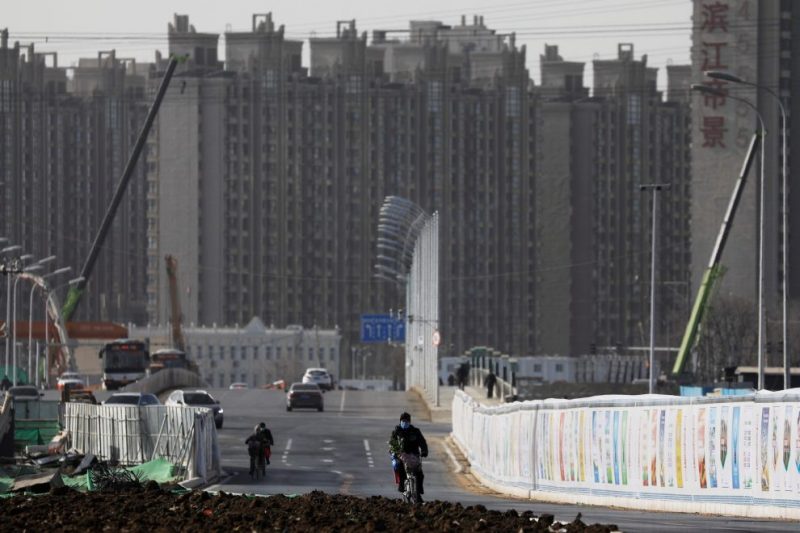China’s mortgage-payment boycott is a high-stakes crisis that if mishandled by policymakers may trigger social instability, says Bank of America.
The boycott may affect about 7.3 million people, dampening market confidence, sales and investment, said analysts led by Helen Qiao in Hong Kong. They said they do not expect the boycott to trigger a systemic banking crisis.
Regulators have vowed to resolve the property crisis, and in the run-up to the highly sensitive 20th Party Congress in the fall, when President Xi Jinping is expected to secure an unprecedented third term as leader of the Communist Party, they are bent on ensuring social stability. Still, no detailed plan has been laid out yet to address the problem and policy intervention is urgently needed to curb spillovers, the bank’s analysts said.
“With the situation still evolving, we believe Chinese authorities will have to intervene promptly to fend off a downward spiral in the property market,” they said. “Otherwise, such widespread mortgage-suspension incidents could hit confidence and send shockwaves to both the demand and supply sides, exacerbating the current property market downturn” that has lasted since the second half of last year.
The most likely policy outcome is that local governments will step in and Local Government Funding Vehicles and State-Owned Enterprises to complete unfinished projects batch by batch, Qiao said.
ALSO SEE: China Property Crisis to Boost Corporate Defaults: JPMorgan
Boycott Triples in Size
The size of the mortgage boycott over unfinished property developments “has spread to 319 projects from 100 just a week ago,” Singapore’s DBS Bank said in a note on Friday
The scale of developer distress in China is so large that “outside money is now needed to finish projects which will otherwise never be finished,” said FX and credit strategist Chang Wei Liang, noting that if these projects fail the hit to homebuyers “could spur a sharp rise in individual bankruptcies and mortgage defaults in the future.”
Chang estimated that 43% of projects belong to distressed developers who have entered into bond exchange, extension, or default.
“These distressed developers have trudged on like a Schrödinger’s cat, being both dead and alive at the same time,” Chang said. “They are dead enough for creditors to refrain from throwing in good money after bad to resume construction, and yet alive enough for home buyers to hope that their projects will be delivered.”
The bank estimated that around 1.1 trillion yuan ($160 billion) worth of mortgages face project delivery risks, adding that “government support of this magnitude is well within China’s fiscal means.”
Policymakers had stuck to their guns in urging a market-based resolution, Chang said, but the growing stand-off between distressed developers and homebuyers may be difficult to resolve “without the sheriff’s intervention.”
- Jim Pollard
ALSO SEE:
China Property Slump May Worsen Amid Covid Curbs: Analysts
Third of China’s Top Developers Could Default in 2022: Goldman
China New Home Prices Fall for First Time This Year
China’s Real Estate Debt Crisis Spills Over Into Steel Sector
























